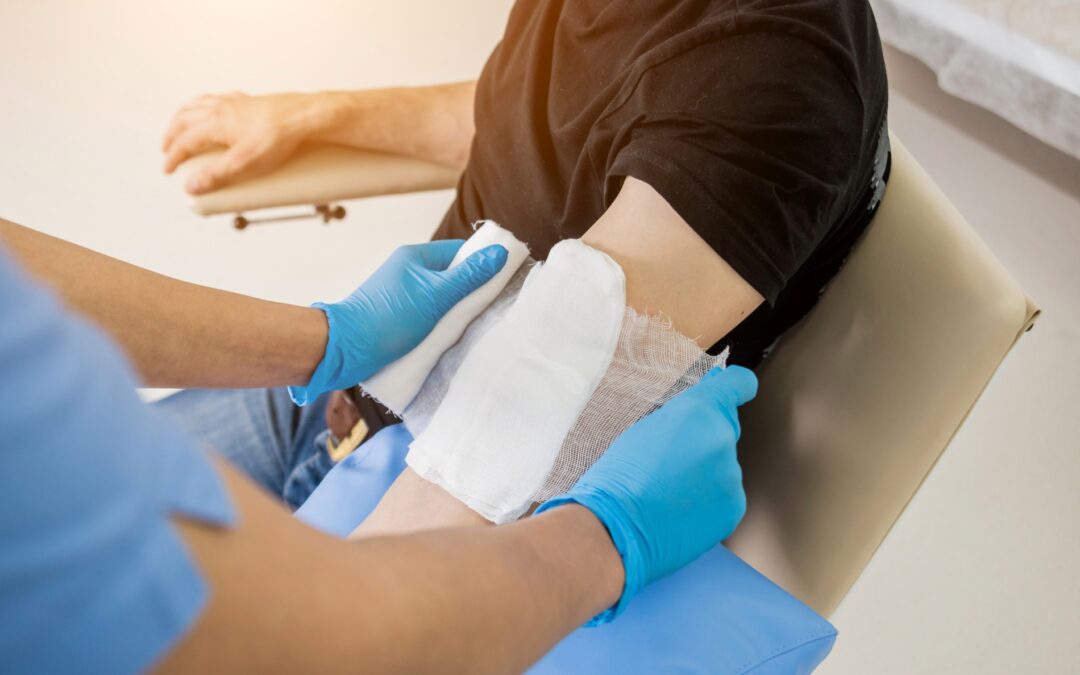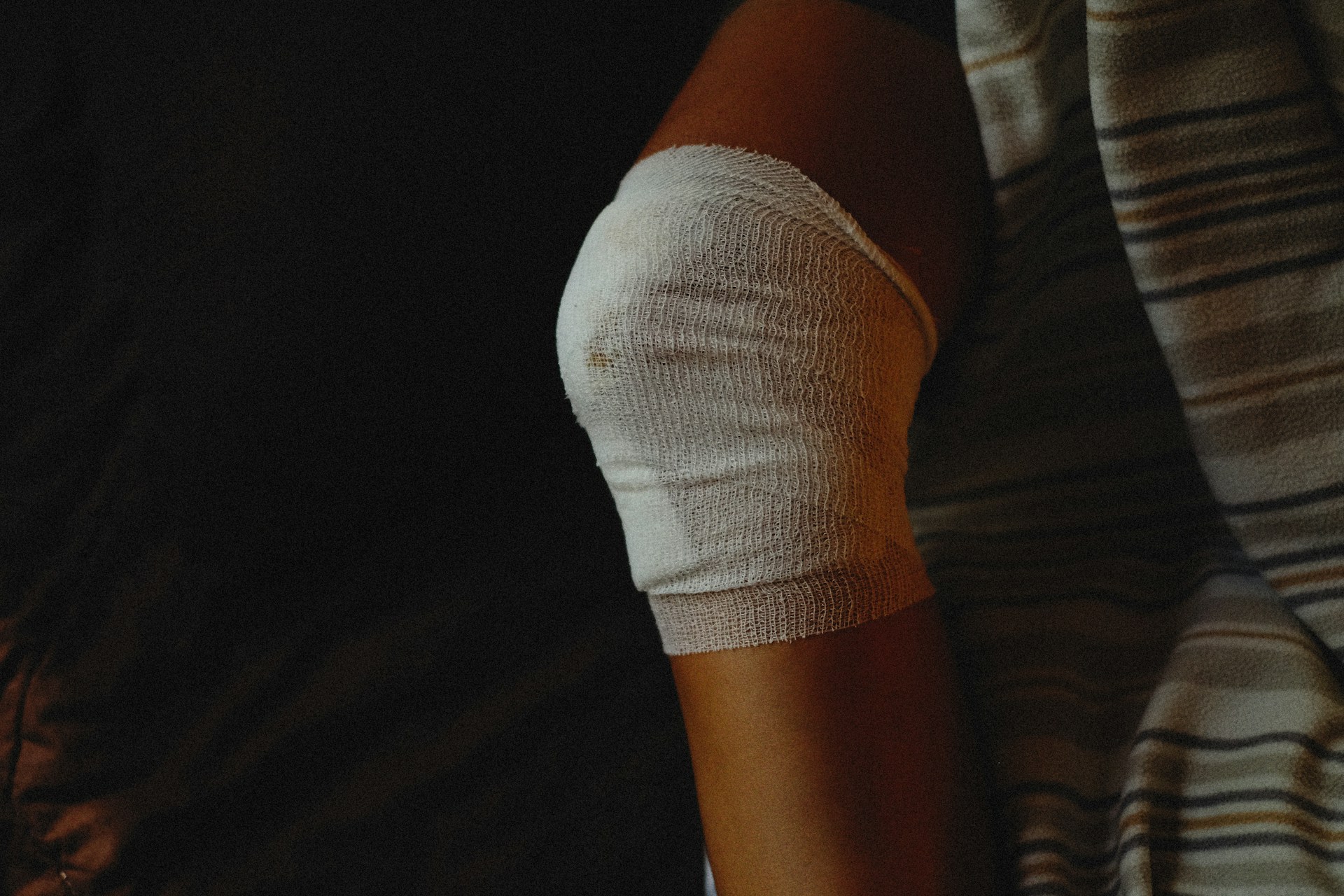Most wounds heal on their own with a little care and cleanliness. But not every injury plays by the rules. Sometimes, the body struggles to heal. Other times, a wound that looked small and under control can spiral into something more serious. That’s where knowing what to look for becomes really important. Trusting your instincts when something doesn’t seem right is just as important as listening to trained professionals.
In places like Brentwood, where folks are always moving and traffic can cause delays, getting to a clinic isn’t always simple. That’s why it helps to know the signs that a wound needs more than just a regular bandage and a little time. It’s not just about appearance, either. Changes in how the body feels, how the wound acts, and how long it takes to improve are all things to keep in mind. Below are some clear signs that point to when it might be time to bring in a wound care specialist in Brentwood.
Signs Of Infection
Infections have a strange way of sneaking up. What starts as a small red bump can quickly turn uncomfortable or worse. If a wound is becoming more painful, warm, or swollen, it’s not something to just wait out. Your body could be waving a red flag, and it’s worth listening.
Here’s what to watch for:
– Red or purple color spreading beyond the edge of the wound
– Swelling that makes it hard to move the skin around the area
– A hot or burning feeling when you touch the skin near the wound
– Drainage that turns cloudy, green, or yellow, especially if it smells bad
Getting medical help early when these signs pop up keeps things from getting out of control. Ignoring these symptoms or brushing them off as minor can lead to more serious problems down the road. If any of these show up, it’s a good time to reach out for in-home wound care rather than heading to a crowded waiting room or trying to handle it alone.
Worsening Pain
Pain is often one of the first things people notice after an injury. Normally, it fades a little more each day. But if it’s getting worse or seems sharper than before, that’s a sign the wound isn’t healing the way it should.
Think about how it felt right after the injury compared to now. Is the pain the same, or has it picked up in intensity? Does it have a throbbing or sharp edge that wasn’t there before? If the pain has changed, especially in a way that makes you wince or avoid using the area, it could mean something has shifted under the surface.
Here’s an example: someone in Brentwood scraped their knee walking their dog. At first, it hurt but looked fine. After a week, they noticed the pain not only lingered but now felt like it was being jabbed every time they stood. That change in pain is what prompted a deeper look, which turned out to be a hidden infection.
Pain that worsens or starts feeling different shouldn’t be ignored. It’s your body’s way of signaling trouble. And when movement or everyday tasks start to hurt more instead of less, it could mean it’s time for extra help. Pain doesn’t always line up with how bad a wound looks on the outside, so don’t wait for things to become visible before acting.
Delayed Healing
Healing takes time, but it shouldn’t take forever. When a wound lingers without showing signs of improvement, that’s more than just an inconvenience. It’s a sign that the healing process may be stuck or interrupted. For people in Brentwood, this is something to take seriously, especially with mobile care options making it simpler to respond early.
Here’s when to be cautious:
– No visible progress after seven to ten days
– A wound that stays the same week after week
– Skin around the injury begins to break down or thin out
– The area keeps getting scraped or bumped, exposing it again and again
Sometimes, a wound that looks like it’s healing may reopen, which can be a warning sign on its own. That’s especially true for deeper injuries or ones in areas that move a lot, like ankles, knees, or elbows. Certain health conditions can slow down the process, too, but even without those, it’s smart to pay attention. If you notice nothing is changing, or it starts to look worse instead of better, it’s time for another set of eyes to take a closer look.
Systemic Symptoms You Shouldn’t Ignore
Your body will often let you know when something isn’t right. Even if the wound doesn’t look that bad, your system might be working overtime to fight back. Fever, chills, unexplained body aches, or just feeling run down can all point toward infection spreading further than the skin.
You don’t have to be visibly sick to have these signs show up. It might sneak in as low energy or brain fog. If you wake up exhausted or feel like you’re getting the flu without the usual symptoms, and you have a wound that hasn’t healed, don’t brush it off. These signals usually mean something deeper is happening.
For example, a person in Brentwood who had a small pressure sore on their heel didn’t feel much pain but noticed they were more tired than usual and started feeling clammy at odd hours. What started as a spot the size of a dime needed professional help before it turned serious. Wound problems aren’t always loud and dramatic. Sometimes, they creep in slowly, and the first signs are general, body-wide symptoms.
Why Early Action Makes a Big Difference
Acting early can be the difference between a minor delay and a major setback. Wounds aren’t one-size-fits-all. Some need more attention because of where they are, how deep they go, or how the body reacts to healing. That’s why care that fits your day and your environment can make all the difference.
Having the option for someone to visit you where you live or recover can take a big weight off your shoulders. There’s no need to drive across town, wait in a lobby, or rearrange your whole week to get it checked out. When mobility is limited or time is tight, in-home care becomes less of a luxury and more of a practical way to manage your health.
Don’t feel like you need to tough it out or guess whether your wound is serious. If it’s hurting worse, taking too long, showing signs of infection, or affecting your overall health, paying attention now could prevent much bigger issues later on. Signs like these are your body’s way of asking for something more, and answering early gives you the best chance to heal quickly and fully.
If you’re noticing signs that your wound needs more attention, it’s important to take action sooner rather than later. Let the care come to you with personalized support right where you are. Connect with a trusted wound care specialist in Brentwood and see how Southern Wound Care can help you heal comfortably and confidently at home or in your facility.




